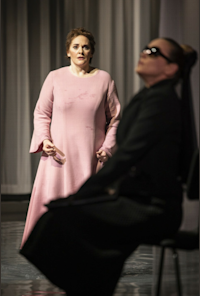

Il trittico
Partager
Aalto-Musiktheater Essen (2021/22)
Informations de l'organisation artistique (vérifiées par Operabase)
Il trittico by Puccini, dim. 07 févr. 2021, Du (2021/2022), Dirigé par Roland Schwab,, Chef d'orchestre Robert Jindra, Aalto Theatre, Essen, Allemagne
Affichage des acteurs et de l'équipe pour 07 févr. 2021
Producteur
Direction d'orchestre
Mise en scène
Distribution
Suor Angelica
(Sœur Angélique)
La Zia Principessa
(La Princesse)
La Badessa
(L'Abbesse)
La Suora Zelatrice
(La Sœur zélatrice)
La Maestra delle Novizie
(La Maîtresse des Novices)
Suor Genovieffa
(Sœur Geneviève)
Équipage
Décors
Costumes
Direction de choeur
Traduction
En savoir plus sur le compositeur
En savoir plus sur le travail musical



